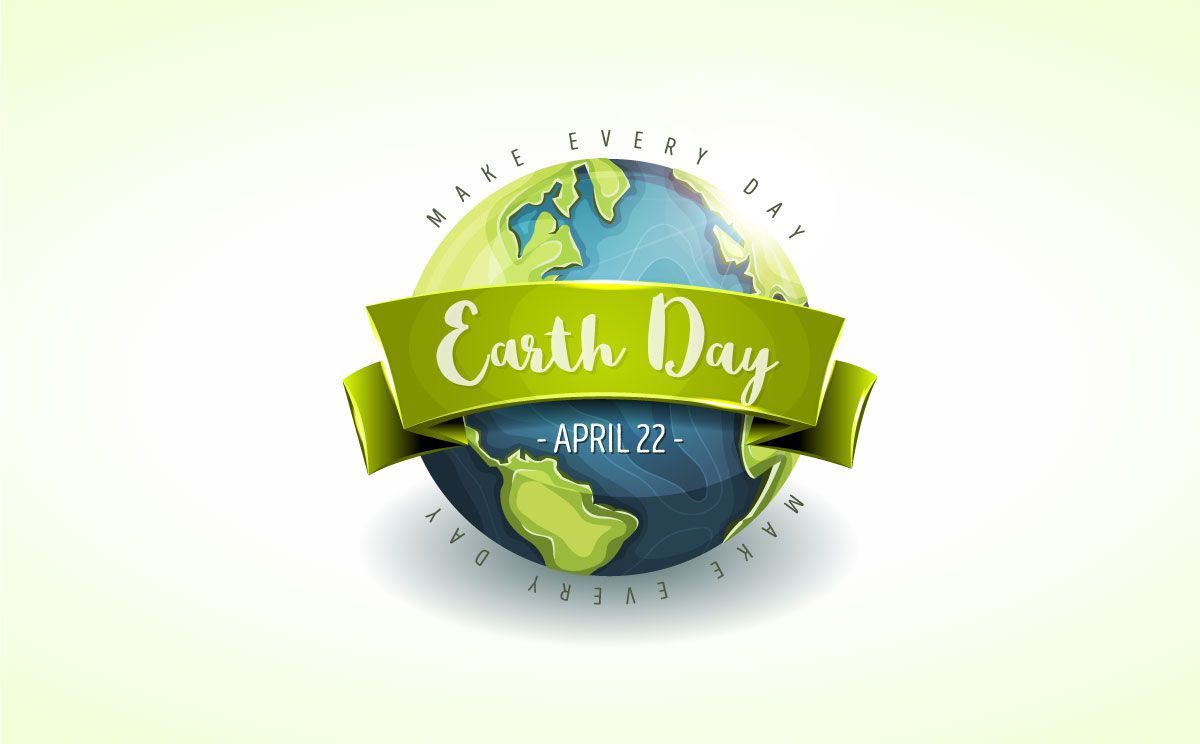Earth Day Projects and Tips
Celebrate Earth Day on April 22. Find ways to celebrate by
REDUCING, REUSING, RECYCLING.

Earth Day Projects and Tips
Save energy
- Use the Energy Star program (http://www.energystar.gov) to find energy efficient products for your home. The right choices can save families about 30% ($400 a year) while reducing our emissions of greenhouse gases. Whether you are looking to replace old appliances, remodel, or buy a new house, ENERGY STAR can help. ENERGY STAR is the government
- Turn off appliances and lights when you leave the room.
- Use the microwave to cook small meals. (It uses less power than an oven.)
- Purchase "Green Power" for your home's electricity. (Contact your power supplier to see where and if it is available.)
- Have leaky air conditioning and refrigeration systems repaired.
- Cut back on air conditioning and heating use if you can.
- Insulate your home, water heater and pipes.
- Keep in mind that every trip adds to air pollution. Learn more at It All Adds Up to Cleaner Air (http://www.italladdsup.gov).
- Replace incandescent light bulbs with Energy Star qualified Compact Fluorescent Light bulbs (CFL). If every household in the U.S. replaced one light bulb with a CFL, it would prevent enough pollution to equal removing one million cars from the road. (http://www.energystar.gov/index.cfm?c=cfls.pr_cfls)
Use less water
- Look for the WaterSense label to identify water-efficient products and programs. The WaterSense label indicates that these products and programs meet water-efficiency and performance criteria. WaterSense labeled products will perform well, help save money, and encourage innovation in manufacturing. (http://www.epa.gov/watersense/index.htm)
- Don't let the water run while shaving or brushing teeth.
- Take short showers instead of tub baths.
- Keep drinking water in the refrigerator instead of letting the faucet run until the water is cool.
- Scrape, rather than rinse, dishes before loading into the dishwasher; wash only full loads.
- Wash only full loads of laundry or use the appropriate water level or load size selection on the washing machine.
- Buy high-efficient plumbing fixtures & appliances.
- Repair all leaks (a leaky toilet can waste 200 gallons a day).
- Water the lawn or garden during the coolest part of the day (early morning is best).
- Water plants differently according to what they need. Check with your local extension service or nurseries for advice.
- Set sprinklers to water the lawn or garden only – not the street or sidewalk.
- Use soaker hoses or trickle irrigation systems for trees and shrubs.
- Keep your yard healthy - dethatch, use mulch, etc.
- Sweep outside instead of using a hose.
- Learn how to plant trees, build a pond, compost, and more from the Department of Agriculture's Natural Resources Conservation Service (http://www.nrcs.usda.gov/feature/backyard).
Reduce/reuse/recycle
Practice the three R's: first reduce how much you use, then reuse what you can, and then recycle the rest. Then, dispose of what's left in the most environmentally friendly way. Read the tips below and explore the Consumer's Handbook for Reducing Solid Waste (http://www.epa.gov/epaoswer/non-hw/reduce/catbook)
- Reduce:
- Buy permanent items instead of disposables.
- Buy and use only what you need.
- Buy products with less packaging.
- Buy products that use less toxic chemicals.
- Reuse:
- Repair items as much as possible.
- Use durable coffee mugs.
- Use cloth napkins or towels.
- Clean out juice bottles and use them for water.
- Use empty jars to hold leftover food.
- Reuse boxes.
- Purchase refillable pens and pencils.
- Participate in a paint collection and reuse program. For information on handling household solid waste, visit Wastes, What You Can Do (http://www.epa.gov/epaoswer/osw/citizens.htm).
- Donate extras to people you know or to charity instead of throwing them away.
- Reuse grocery bags as trash bags.
- Recycle:
- Recycle paper (printer paper, newspapers, mail, etc.), plastic, glass bottles, cardboard, and aluminum cans. If your community doesn't collect at the curb, take them to a collection center.
- Recycle electronics.
- Collecting Used Oil for Recycling / Reuse (PDF).
- Compost food scraps, grass and other yard clippings, and dead plants.
- Close the loop - buy recycled products and products that use recycled packaging (PDF) (13 pp, 1.6 MB). That's what makes recycling economically possible.
Handle toxics properly
What's under your kitchen sink, in your garage, in your bathroom, and on the shelves in your laundry room? Learn more about what's in these products, about potential health effects, and about safety and handling. A database of household products tells you more(http://hpd.nlm.nih.gov)
Common household items such as paints, cleaners, oils, batteries, and pesticides contain hazardous components. Although we cannot completely stop using hazardous products, we can make sure that leftovers are managed properly. The best way to handle household hazardous waste is to give leftovers to someone else to use.
Many communities have set up collection programs to keep hazardous products out of landfills and combustors. More than 3,000 household hazardous waste (HHW) collection programs exist in the United States. Read more about household hazardous waste. (http://www.epa.gov/epaoswer/non-hw/muncpl/hhw.htm)
In addition to items listed here, check the Earth Day sites of various agencies for more tips and events in your area.
Courtesy of EPA.gov
-
Frequently Asked Questions - FAQ
Frequently asked questions about recycling
-
Earth Day Projects and Tips
Celebrate Earth Day - April 22
Celebrate Earth Day on April 22. Find ways to celebrate by
REDUCING, REUSING, RECYCLING. -
Top 50 Things To Recycle and Reuse
When most people think of recycling, they think about recycling things such as aluminum cans, plastic water bottles and plastic grocery bags. But in reality, you can recycle almost anything. Here is a list of 53 common things you can recycle.
-
State Electronics Recycling Programs and Policies
Find state run recycling centers near you.